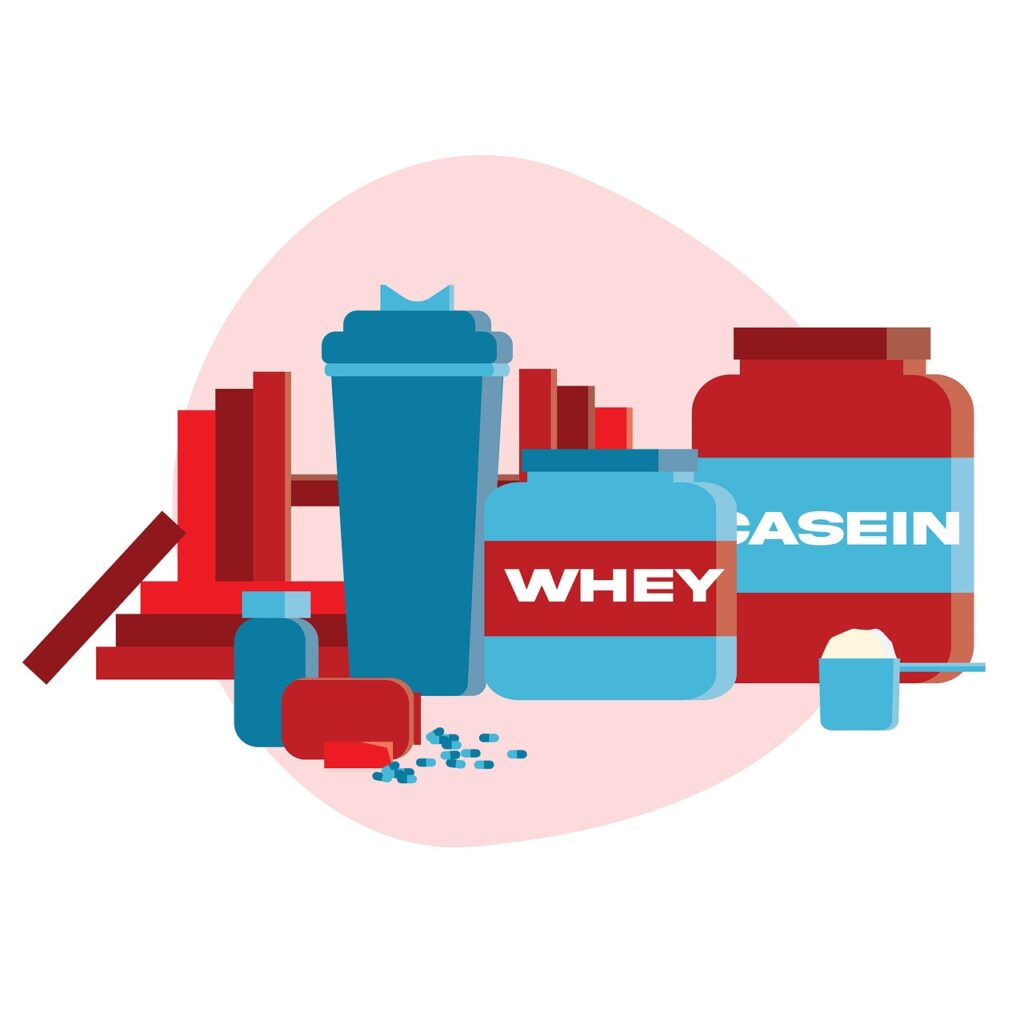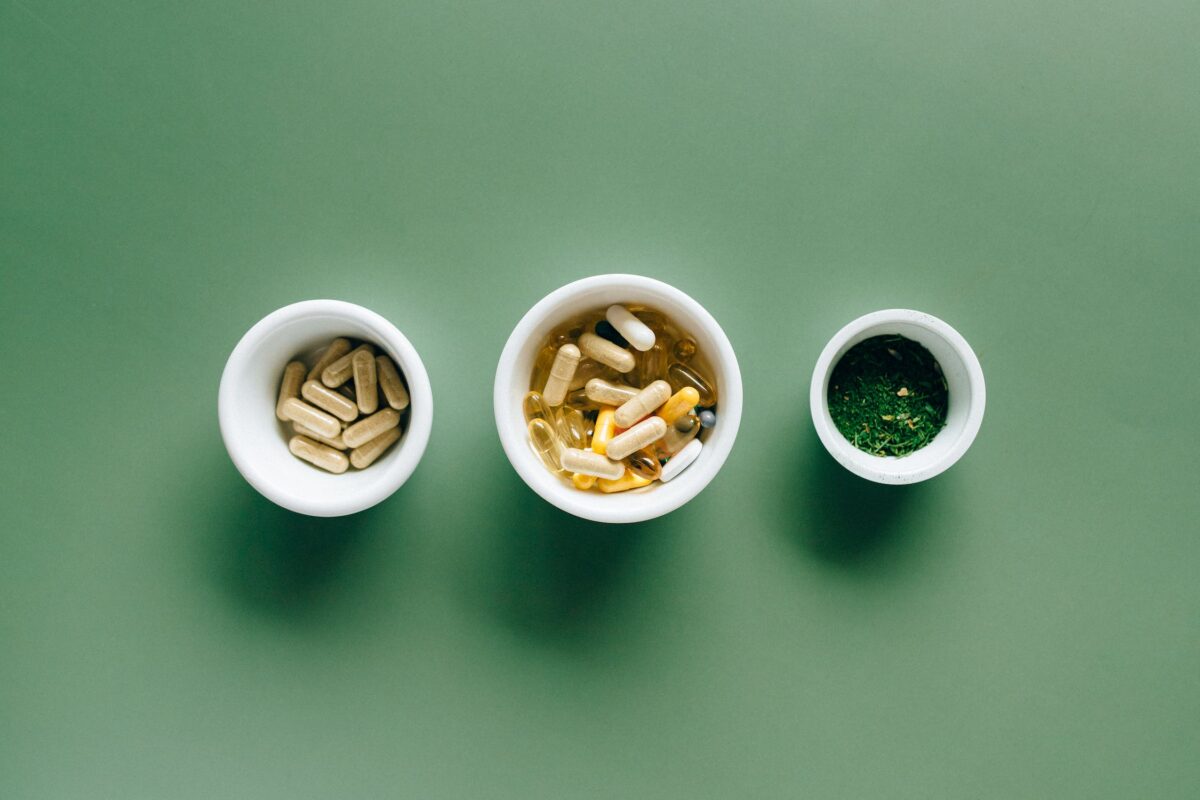Building muscle has become something that both fitness enthusiasts and athletes want to achieve. While some people want to have a muscular physique to look good, there are many other benefits to building muscle beyond having an aesthetically pleasing physical appearance. In fact, the advantages of increased muscle mass can have a positive impact on overall health, performance, and well-being.
The first reason people want to gain muscle is to improve their physical performance by giving them more strength and power so that they can perform better when doing activities such as lifting weights, running, or playing sports. Having more muscle increases metabolism because muscles require more energy to maintain than fat.
This means that building muscles can increase the number of calories that can be burned while the body is at rest (1). An obvious benefit of increasing lean body mass through building muscle is improved body composition. This leads to a decrease in body fat and an increase in bone density, reducing the risk of osteoporosis (2). Increasing muscles using supplements alone won’t help with bone density, this is achieved by doing strength and resistance training, such as lifting weights.
Along with building more muscle, resistance training has also been shown to make insulin work better. This has the knock-on effect of reducing the risk of developing type 2 diabetes (1). While we are talking about health benefits, it is worth noting that exercise and strength training, in general, are linked with many health benefits, such as reduced risk of heart disease, stroke, and even some types of cancer (3). Finally, if you look good, you feel good. So another reason for gaining muscle is to help improve confidence and self-esteem.
Now that we have looked at the benefits of muscle gain, let’s talk about which supplements you can take to help boost your efforts in the gym. Eating copious amounts of steak and eggs may not be practical to support muscle gain; therefore, taking a supplement is a convenient and cost-effective way of increasing protein intake. There are several supplements that are commonly used to help with building muscle. Let’s check out some of the most popular ones:
Protein Powders

Who among us has not gone through a protein powder phase? Protein is essential for muscle growth and repair, and protein powders are an easy way to increase your protein intake. They can be added to water, milk, or shakes. There are a few different types of protein powder that are used for muscle building.
Whey Protein
Whey protein is a fast-digesting protein that has all the essential amino acids needed for muscle growth. Amino acids are the building blocks of proteins, of which there are twenty altogether. They are essential for the growth and repair of muscles as well as many other biological processes, including hormone and enzyme production and immune function (4).
Whey protein, from milk, is considered the most effective protein for muscle building due to its amino acid content and the fact that it is digested quickly. Whey protein contains all nine essential amino acids, including a high concentration of branched-chain amino acids, which are particularly important for muscle growth and recovery (5). Whey protein is rich in leucine, an amino acid that is especially important for building muscle. This is because leucine activates a process that stimulates protein production and enables muscle growth (6).
Research has shown that eating whey protein after working out can increase muscle protein production (7), which is how muscles grow and repair themselves. This is because whey protein is quickly absorbed into the bloodstream. This lets the amino acids get to the muscles quickly so they can start making protein (5). While whey protein is great for building muscle, it also has immune and gut health benefits due to the compounds such as lactoferrin and immunoglobulins that it contains (6).
Overall, the high-quality amino acids, the fast digestion rate, and the bioactive peptides in whey protein make it a very effective supplement for muscle gain and recovery.
Casein Protein, a dairy option for building muscle
Like whey protein, casein protein also originates from milk and contains all the essential amino acids. However, it is slower to digest and absorb than whey protein. This makes it a good option for a steady release of protein throughout the day (8).
For those that are dairy intolerant, vegetarians, or vegans, there are plant-based protein powder supplements for muscle building. These include soy, pea, and rice protein powders.
Soy Protein
Soy protein comes from soybeans, and although it contains all the essential amino acids (9), it is often considered less effective than whey protein for muscle building. However, it is digested and absorbed as fast as whey protein (8).
Pea Protein, perfect for those with soy or dairy allergies
Pea protein is made from yellow split peas. It is high in branched-chain amino acids, contains all nine essential amino acids as well as having high iron content. It is easily digested and absorbed. Pea protein is a good option for those with dairy or soy allergies (10).
Rice Protein
As the name suggests, rice protein comes from rice, specifically brown rice. It is a plant-based protein that is high in branched-chain amino acids and is easily digested and absorbed. While it is considered less effective than whey protein for building muscle, it is great for recovery after a workout (11).
Hemp Protein
Hemp protein is made from the seeds of the hemp plant. Hemp contains all nine essential amino acids, although it is low in lysine and so is often considered less effective than whey protein for muscle building. It has less protein overall than soy and pea protein powders, although it is less processed, which may be preferable for some people. Finally, it is high in fiber and omega-3 fatty acids, which make it easily digested and absorbed and beneficial for overall health and well-being (12).
As well as protein powders as supplements for building muscle, there are a few other supplements that are available.

Creatine, a favorite for building muscle
Creatine is a supplement for muscle gain that comes from beef, pork, or fish sources. Although it is found in the muscles, it is not a protein. Creatine helps the body produce more energy in the form of adenosine triphosphate (ATP), which is important when exercising (13). Creatine is the go-to choice of many health conscious people looking to gain muscle, as it increases strength and performance, especially during high-intensity strength exercises (14).
Branched-chain amino acids
We have already mentioned branched-chain amino acids that are present in some protein powders. However, they can be taken as a supplement on their own for building muscle. The specific branched-chain amino acids are valine, leucine, and isoleucine. They help boost muscle gain but also prevent the breakdown of muscle. They are often taken before or during exercise to help with muscle recovery and growth. However, it must be noted that the body needs all of the essential amino acids, so taking branched-chain amino acids alone will not give you the results that you want to boost muscle gain (15).
While these supplements can be helpful for muscle gain, they are not a substitute for a healthy diet. Despite being sold as healthy, some muscle gain supplements can also have side effects, especially creatine (16). These include digestive issues, dehydration, liver and kidney damage, and an increased risk of cardiovascular issues such as high blood pressure and heart disease (17).
As with any change to your health and wellbeing, it is important to speak with a healthcare professional before starting any new supplement.
- Increasing muscle mass to improve metabolism https://www.ncbi.nlm.nih.gov/pmc/articles/PMC3661116/
- Strength training builds more than muscles https://www.health.harvard.edu/staying-healthy/strength-training-builds-more-than-muscles
- Muscle-strengthening exercises may lower risk of death https://www.medicalnewstoday.com/articles/muscle-strengthening-exercises-may-lower-risk-of-death
- Biochemistry, Essential Amino Acids https://www.ncbi.nlm.nih.gov/books/NBK557845/
- 10 Evidence-Based Health Benefits of Whey Protein https://www.healthline.com/nutrition/10-health-benefits-of-whey-protein
- Bovine whey proteins – Overview on their main biological properties https://www.ncbi.nlm.nih.gov/pmc/articles/PMC7126817/
- Effects of Protein Supplementation on Performance and Recovery in Resistance and Endurance Training https://www.ncbi.nlm.nih.gov/pmc/articles/PMC6142015/
- Ingestion of whey hydrolysate, casein, or soy protein isolate: effects on mixed muscle protein synthesis at rest and following resistance exercise in young men https://pubmed.ncbi.nlm.nih.gov/19589961/
- Quality of Soybean Products in Terms of Essential Amino Acids Composition https://www.ncbi.nlm.nih.gov/pmc/articles/PMC8398613/
- Pea Protein Powder: Nutrition, Benefits and Side Effects https://www.healthline.com/nutrition/pea-protein-powder
- Brown Rice Protein vs Whey Protein: Which Should You Choose? https://www.performancelab.com/blogs/protein/brown-rice-protein-vs-whey-protein
- Hemp Protein Powder: The Best Plant-Based Protein? https://www.healthline.com/nutrition/hemp-protein-powder
- What Is Creatine? Benefits, Dosage & Side Effects https://www.myprotein.com/thezone/supplements/what-is-creatine-benefits-dosage-side-effects/
- Creatine Supplementation and Exercise Performance: A Brief Review https://www.ncbi.nlm.nih.gov/pmc/articles/PMC3963244/
- Branched-chain amino acids and muscle protein synthesis in humans: myth or reality? https://www.ncbi.nlm.nih.gov/pmc/articles/PMC5568273/
- Creatine Side Effects: Is It Safe? FAQs You Should Know https://www.healthline.com/nutrition/creatine-safety-and-side-effects
- Side Effects of Amino Acid Supplements https://www.ncbi.nlm.nih.gov/pmc/articles/PMC8997670/
